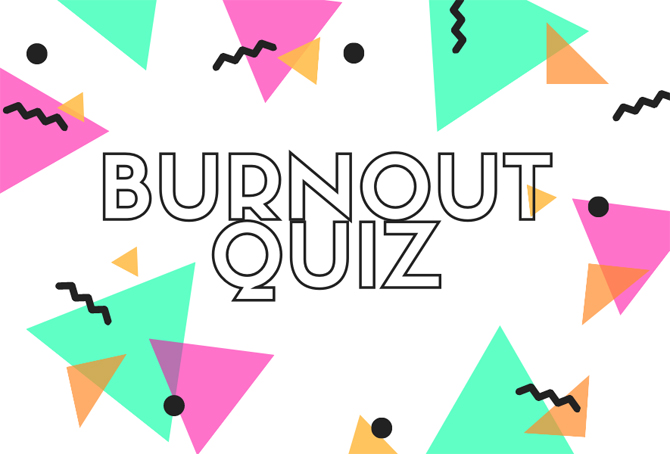According to experts from Deakin University, somewhere between 5-7% of the Aussie workforce suffers from burnout. It is also believed that burnout is on the rise amongst helping professionals, such as those working in healthcare, as well as vets, animal trainers and behaviour consultants.
Given that burnout is an occupational phenomenon that is rising in popularity, it’s important to understand your risk. Find out the common symptoms and whether you’re at risk with our burnout quiz.
Are you at risk of burnout? Take this quick quiz to find out…
While burnout is not considered a medical diagnosis, it can have major consequences on your health. Jobs, such as those in the pet industry, that can be stressful, involve working with aggressive or anxious animals and require great compassion and empathy, can increase the risk of burnout.
By recognising the signs and whether you’re at risk of burnout, you can take steps to reduce your chances and ease job-related burden. Simply, answer yes or no to the following questions or statements.
Do you regularly experience any of the below feelings?
- Stress
- Anxiety
- Feeling isolated and alone
- Emptiness
Is it becoming more common for you to feel:
- Disillusioned about your job/work
- Cynical or critical at work
- Dissatisfied with your accomplishments
- You have little control over your work
When it comes to your health, are you:
- Lacking energy
- Having difficulty sleeping
- Experiencing unexplained headaches or physical pain
- Finding it difficult to stay focused
- Less interested in social interactions
Do any of the following job-related factors/experiences apply to you?
- Working overtime and/or weekends have become the ‘norm’
- You feel you have little control over your workload
- Frequently, you feel you are not doing a good enough job
- You often perform duties outside your role
- You doubt yourself and your abilities
If you answered yes to the majority of these questions, you may be at risk of burnout. This might put you at risk of other health concerns too, such as migraines, insomnia and depression.
Put a stop to burnout
There are several different stages of burnout. However, while it can be useful to understand these stages, it’s important to recognise that no matter what stage you’re at there are steps you can take to help yourself.
According to Reach Out, common signs of burnout include:
- Feeling exhausted and unable to perform basic tasks
- Losing motivation in many aspects of your life, including your work and friendships
- Feeling unable to focus or concentrate on tasks
- Feeling empty or lacking in emotion
- Losing your passion and drive
- Experiencing conflict in your relationships with co-workers, friends and family
- Withdrawing emotionally from friends and family.
If you’re familiar with the above symptoms and feel you may be experiencing burnout there are many actions you can take. The following steps may help.
- Take time out daily to ‘switch-off’ from work
- Set boundaries to avoid overextending yourself
- Seek help from friends, colleagues, family or a health professional
- Set goals to restore balance to your work-home life
- Incorporate regular exercise into your week for stress relief
- Consider letting ‘difficult’ clients go
- Make self-care a priority. This might mean booking in work-free weekends, eating better, cutting out alcohol or taking up meditation
Information sources:
Gillezeau N. The burnout generation. Financial Review. July 2019. Accessed online via: https://www.afr.com/
Valcour M. Beating burnout. Harvard Business Review. Nov 2016. Accessed online via: https://hbr.org/2016/11/beating-burnout
Latest posts by Liz Walden (see all)
- Pet health: Medicinal cannabis for pets - December 27, 2021
- What pet business insurance do I need? - November 17, 2021
- Pet sitters: how to take time off - November 15, 2021










Leave A Comment